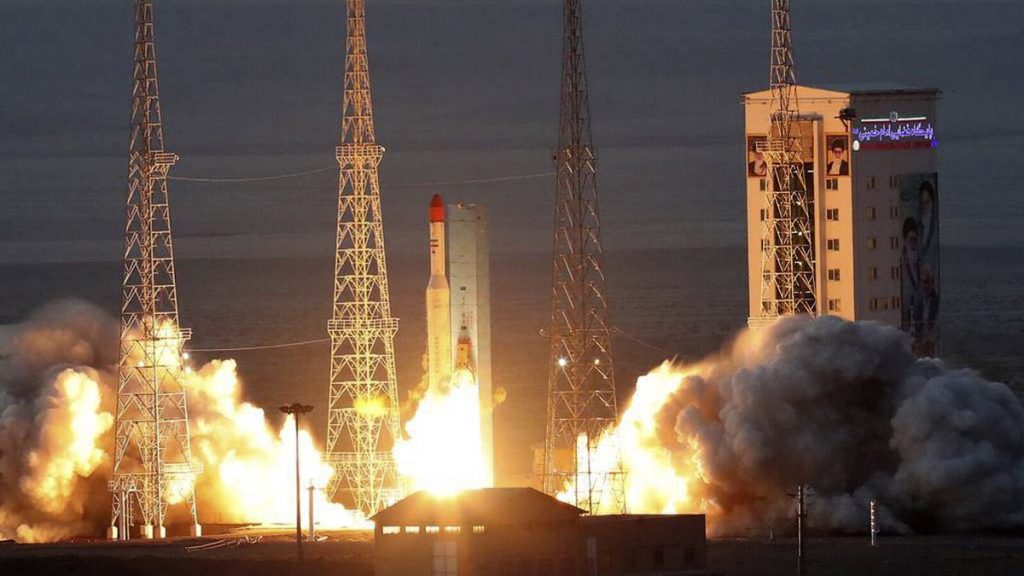Rafael Mariano Grossi, the director general of the International Atomic Energy Agency (IAEA), has voiced serious concerns regarding Iran’s escalating nuclear capabilities. Speaking at the Manama Dialogue in Bahrain, Grossi highlighted Iran’s plan to install 6,000 new centrifuges, which would significantly enhance its uranium enrichment capacity. Currently, Iran enriches uranium to 60%, a level dangerously close to the 90% required for weapons-grade material. Grossi warned that if Iran operationalizes all these centrifuges, it would represent “a huge jump” in its nuclear program, raising international anxieties about the country’s nuclear ambitions. This development comes amidst heightened tensions and underscores the urgent need for a comprehensive approach to addressing Iran’s nuclear program.
Grossi’s apprehension is further compounded by Iran’s recent successful launch of the Simorgh rocket carrying its heaviest payload to date. While Iran maintains that its space program is solely for peaceful purposes, critics argue that such advancements directly contribute to the development of ballistic missile technology. This dual-use capability raises concerns about Iran’s potential to weaponize its space program, adding another layer of complexity to the international community’s efforts to monitor and contain its nuclear ambitions. The confluence of the centrifuge installation plan and the rocket launch amplifies the anxieties surrounding Iran’s nuclear trajectory.
The head of MI6, Richard Moore, echoed these concerns, emphasizing that Iran continues to pose a threat despite setbacks faced by its allies in the region. Moore’s statement underscores the enduring nature of the Iranian threat, highlighting the regime’s nuclear ambitions as a persistent source of danger. While Iran’s regional influence may have been challenged, its nuclear program remains a central concern for international security, requiring continuous vigilance and a concerted international response. This perspective reinforces the need for a comprehensive strategy that addresses both Iran’s regional activities and its nuclear program.
The timing of these developments coincides with the upcoming inauguration of US President-elect Donald Trump, who has vowed to reinstate his “maximum pressure” campaign against Iran. This approach, characterized by stringent economic sanctions and diplomatic isolation, aims to cripple Iran financially and curtail its nuclear program. The re-imposition of this policy signals a shift in US-Iran relations and potentially heralds a renewed period of heightened tensions. The international community will be closely watching how these developments unfold and what impact they will have on regional stability.
Trump’s “maximum pressure” strategy is a departure from the previous administration’s engagement with Iran through the Iran nuclear deal, formally known as the Joint Comprehensive Plan of Action (JCPOA). The JCPOA, negotiated under the Obama administration, offered Iran sanctions relief in exchange for verifiable limits on its nuclear program. However, the Trump administration withdrew from the agreement in 2018, arguing that it was insufficient to curb Iran’s nuclear ambitions and destabilizing regional behavior. This withdrawal marked a significant turning point in international efforts to address the Iranian nuclear issue.
The international community now faces the complex challenge of navigating the escalating tensions surrounding Iran’s nuclear program. With the IAEA expressing grave concerns, Iran demonstrating advancements in its nuclear and missile capabilities, and the US signaling a return to a more confrontational approach, the need for a coordinated and effective international strategy is paramount. The future of the Iranian nuclear issue remains uncertain, with potential implications for regional and global security. The international community must engage in careful diplomacy and strategic planning to mitigate the risks and prevent further escalation. The stakes are high, and the coming months will be critical in determining the course of this complex and sensitive issue.














